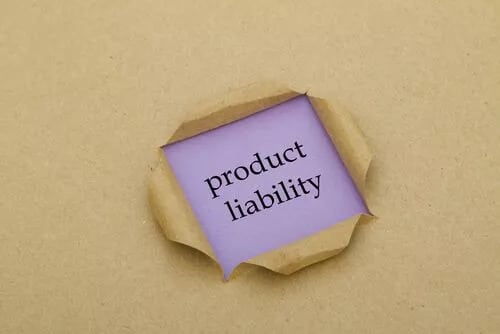Products Liability Still Under Attack: The Latest Effort to Change Florida’s Jury Instructions
The Florida Supreme Court adopted the doctrine of strict products liability in its 1976 decision in West v. Caterpillar, declaring: “The cost of injuries or damages, either to persons or property, resulting from defective products, should be borne by the makers of the products who put them into the channels of trade, rather than by the injured or damaged persons who are ordinarily powerless to protect themselves.” West v. Caterpillar Tractor Co., 336 So. 2d 80, 92 (Fla. 1976). While West remains the law of our State, a recent effort to change the civil jury instructions threatens to undermine the doctrine of strict products liability in Florida.
First, a little bit of background is required to understand the significance of the recent proposal to change the jury instructions. Over the past several decades, manufacturers have launched a variety of assaults on the doctrine of strict products liability. Until October of last year, their battleground of choice revolved around the definition of “design defect.” The Second Restatement, which was adopted by the Florida Supreme Court in West, relies upon the “consumer expectations test.” That standard provides that a product is defective if it fails to perform as safe as a consumer could reasonably expect. The Third Restatement, however, employs the so-called “risk-utility test,” which asks whether the product’s risks outweigh the product’s utility. Manufacturers like this test because it effectively transforms strict products liability claims into negligence actions. And the manufacturers won a major battle on this front back in 2012, as the Third District Court of Appeal unilaterally adopted the “risk-utility” test over the “consumer expectations” test, despite the Florida Supreme Court’s adoption of the Second Restatement in West. Union Carbide Corp. v. Aubin, 97 So. 3d 886 (Fla. 3d DCA 2012).
The manufacturers’ victory was short-lived, however. Last October, the Florida Supreme Court handed down a landmark decision in Aubin v. Union Carbide, setting the record straight by rejecting the Third Restatement’s “risk-utility” test, and instead declaring that plaintiffs are entitled to pursue strict products liability claims under the “consumer expectations test.” Aubin v. Union Carbide Corp., 177 So. 3d 489 (Fla. 2015). The Aubin decision is a must-read for any attorney handling a products liability case in Florida. Among other things, the decision makes it resoundingly clear that the consumer expectations test is a vital aspect of strict products liability under Florida law. In doing so, the Court emphasized the fact that the risk-utility test essentially converts a strict liability claim into a claim for negligence. We previously covered this point and other highlights from Aubin in this article.
Now fast forward to September 2016. The Committee on Standard Jury Instructions in Civil Cases has proposed additional revisions to the products liability jury instructions, in part to address the Aubin decision. We applaud some of the changes, most notably that the new model verdict form makes it clear that the plaintiff is entitled to pursue a consumer expectations theory if he or she chooses to do so. This helps to clear up a major question that the Committee had previously elected to punt on, as we wrote when the new instructions were first approved back in 2015. To further clarify this point, we believe that the “Note on Use” for Instruction 403.7 should expressly state that the plaintiff has the choice as to whether he or she wants to prove the case under the consumer expectations or risk-utility test.
However, we are greatly concerned with a newly proposed defense instruction. Specifically, the Committee has proposed to revise instruction 403.18b to provide for a so-called “Unavoidably Unsafe Product” defense. The proposed instruction would provide that the jury is to consider “whether there was no reasonable alternative design for (the product) when it was placed on the market and, on balance, at that time, the [benefits] [or] [value] of (the product) outweighed the risks or danger connected with its use.” As the sole support for this instruction, the committee cites to comment k of § 403A of the Second Restatement of Torts.
The Committee’s new proposed defense is problematic both because of its name and its citation to comment k. Comment k, by its own terms, is strictly limited to those “products which, in the present state of human knowledge, are quite incapable of being made safe for their intended and ordinary use.” Restatement (Second) of Torts, § 402A, cmt k. The Restatement further observes that such products “are especially common in the field of drugs.” Id. Significantly, the effect of comment k is to remove a claim from strict products liability, and instead apply a negligence standard. Id. (“The seller of such products, again with the qualification that they are properly prepared and marketed, and proper warning is given, where the situation calls for it, is not to be held to strict liability for unfortunate consequences attending their use, merely because he has undertaken to supply the public with an apparently useful and desirable product, attended with a known but apparently reasonable risk.”).
Florida courts have cited to and relied upon comment k. However, Florida decisions applying this standard have involved drugs, vaccines, or medical devices. See, e.g., Adams v. G.D. Searle & Co., 576 So. 2d 728 (Fla. 2d DCA 1991) ( “Comment k was designed in part to protect new and experimental drugs.”); Ocasio v. C.R. Bard, Inc., No. 8:13-cv-1962-T-36AEP, 2015 U.S. Dist. LEXIS 71742, at *16 (M.D. Fla. June 3, 2015) (“Under Florida law, comment k may be raised as an affirmative defense to a strict liability design defect claim for a medical device.”); E. R. Squibb & Sons, Inc. v. Jordan, 254 So. 2d 17, 20 n.1 (Fla. 1st DCA 1971) (“In connection with this theory, see § 402A, Second Restatement of Torts, Comment k, which notes as an exception from the strict liability concept various new or experimental drugs which, because of lack of time and opportunity for sufficient medical experience, cannot be considered as being absolutely safe for human consumption, although available experience justifies the marketing and use of the drug notwithstanding a medically recognized risk.”).
There is no support in Florida law for extending comment k beyond pharmaceutical drugs, vaccines, or medical devices. The only Florida decisions I could locate which address the applicability of comment k to products beyond pharmaceuticals, medical devices, and vaccines have held that comment k did not apply. For example, the Florida Supreme Court refused to extend the comment to blood transfusions. Rostocki v. Sw. Fla. Blood Bank, Inc., 276 So. 2d 475, 477 (Fla. 1973). Likewise, a federal court applying Florida law held that the doctrine does not apply to pesticides. Kennan v. Dow Chem. Co., 717 F. Supp. 799 (M.D. Fla. 1989). These holdings place Florida in the majority of states which have generally declined to extend the “unavoidably unsafe” product doctrine contained in comment k to products outside of the drug, vaccine, and medical device context. See 70 A.L.R.4th 16 (collecting nationwide cases addressing the issue of what is an “unavoidably unsafe product,” and concluding that courts have generally held that motor vehicles, motor vehicle parts, motorcycles, lawn chairs, fire extinguishers, clothing, punch presses, front-end loaders, conveyer belts, gas stoves, scaffolding, and other types of products are not “unavoidably unsafe”).
Accordingly, it’s clear that comment k simply does not apply to the vast majority of products liability cases in Florida. So it’s questionable why we would even need a pattern jury instruction on this issue. And if such an instruction is included, there should be, at minimum, a clear disclaimer that the instruction will only apply to certain types of products, including medical drugs and devices. But the current proposal contains no such limitation or disclaimer. Instead, the model verdict form applies this defense to a hay baler. Yes, you read that correctly: a hay baler! Of course, there is absolutely no support under Florida law for the application of comment k to a hay baler.
If the currently drafted proposal were ultimately included in the instructions, defendants would no doubt attempt to interject an “unavoidably unsafe product” defense into each and every case. In doing so, they would hope to transform all strict products liability cases into negligence cases. In effect, this will resurrect the pre-Aubin arguments that all products liability cases should be ultimately judged and decided on the risk-utility test rather than the consumer expectations standard. These arguments would be wrong on the law, and would only serve to create confusion and the potential need to appeal erroneous rulings.
You can view the proposed revisions for yourself at this link. Additionally, the Committee is accepting comments on the proposed revisions to the jury instructions through September 30, 2016. Here are the instructions for submitting a comment:
Interested parties have until September 30 to submit comments electronically or by mail to the Civil Committee at sjicivil@flcourts.org, or to the chair of the Civil Committee, Rebecca Mercier Vargas, Kreusler-Walsh, Compiani & Vargas, P.A., 501 S. Flagler Drive, Suite 503, West Palm Beach 334015913, rvargas@kwcvpa.com, and a copy to The Florida Bar liaison for the committee, Heather Savage Telfer, The Florida Bar, 651 E. Jefferson Street, Tallahassee 323996523, htelfer@floridabar.org.
We strongly encourage all consumer advocates to weigh in and argue against the new “Unavoidably Unsafe Product” instruction. We submitted our comments earlier today.


